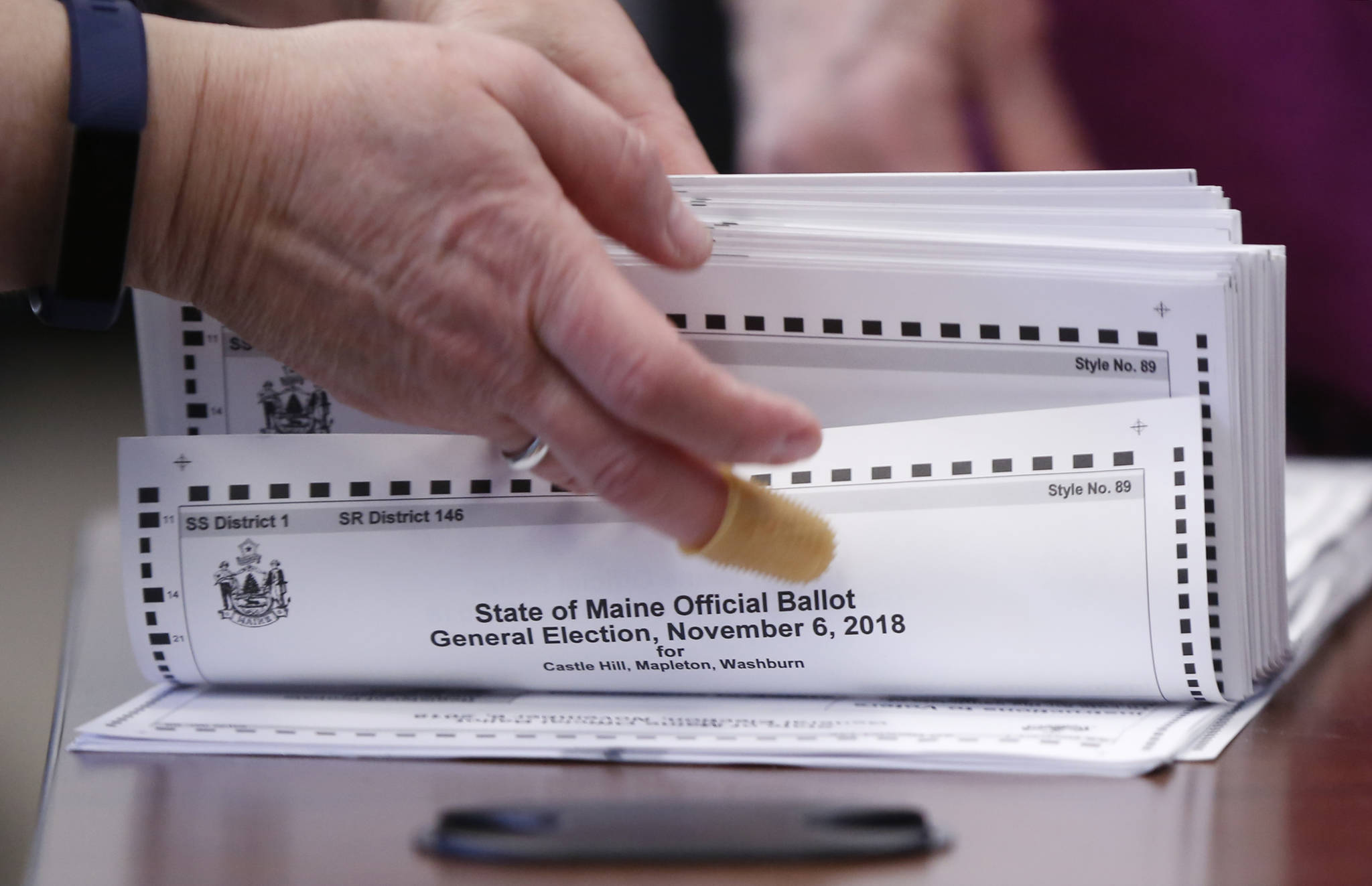Supporters and detractors of a state ballot measure to change the state’s election process gave very different portrayals of what the reforms might mean for Alaska in talks this week.
Alaska’s Ballot Measure 2, a bundle of three election reforms, which if passed, would either bring clarity and equity to a system manipulated by entrenched interests or undermine and confuse a trusted process with proven results, depending on who you ask.
Measure 2 would, according to its description on sample ballots provided by the state “create an open nonpartisan primary where all candidates would appear on one ballot…establish ranked-choice voting for the general election…(and) require additional disclosures for contributions to independent expenditure groups and relating to the sources of contributions.”
It’s a bundle of voting reform measures that have never been passed together, said Shea Siegert, campaign manager for Alaskans for Better Elections, a group supporting the measure.
“We would be the first state to implement all three,” Siegert said in a video interview with the Empire. “Open primaries have led to increased turnout in the cities and states that have passed it.”
Siegert said ranked-choice voting had been implemented with great success in Maine, where voters approved the change in 2016. But Maine’s experience with ranked-choice voting was portrayed very differently Thursday during the Juneau Chamber of Commerce Luncheon.
[Initiative would bring ranked-choice voting, other changes to Alaska]
“In Maine, it’s been a horror story,” said Brett Huber, campaign manager for Defend Alaska Elections, the group opposing Measure 2.
According to PBS, ranked voting in Maine has become a partisan issue with the state Republican Party leading the effort to repeal the measure. Republicans have twice failed to have ranked voting declared unconstitutional by a federal judge, PBS said, and are currently promoting a referendum to repeal ranked-choice voting there.
Forms of ranked-choice voting have been used in Australia and the Republic of Ireland among other countries, according to the New York Times.
Opposition to ranked-choice voting and other election reforms has been bipartisan, with Democrats and Republicans falling on both sides of the issue. During his presentation, Huber, who previously worked for Gov. Mike Dunleavy, cited a quote from California Gov. Gavin Newsom criticizing ranked-choice voting.
“All parties are against ranked-choice voting,” Huber told the Chamber, but Siegert pointed out the Alaska Democratic Party had used ranked-choice voting for its own primary elections this summer.
Speaking to the Chamber, Huber called the changes in Measure 2 “laborious and hard to understand” and “a failed experiment that has failed in other places.”
But Siegert and Robert Dillon, senior communications manager for ABE, argued complications were being overstated by the opposition, and the process was easy to understand.
With ranked-choice voting, voters select their top four candidates. If none of those candidates receives an outright majority, the candidate with the fewest first-choice votes is eliminated. Those who voted for the eliminated candidate will have their votes go to the candidate they marked as their second choice. The process repeats until a candidate has a majority. Ranked-choice voting would only be used in general elections.
“It’s as easy as counting to four,” Siegert said. “Most people I talk to, they can count to four.”
Ranked-choice voting is just one of the legs of Measure 2, another is open primaries, which puts all primary candidates on the same ballot, rather than the separate partisan ballots currently in place. Open primaries give voters more options, Dillon said, which was a good fit for Alaskan politics which often don’t fall along strict party lines.
“The problem with turnout is people think their vote doesn’t matter, or they don’t think they can make a difference,” he said. “By opening primaries, we ensure they can vote on all candidates, even if their first choice isn’t chosen.”
[At 101, Alaskan aviatrix reflects on ‘best and happiest’ days of her career]
But Huber countered that open primaries can squeeze out minority parties in areas dominated by a single political party. Open primaries, which Huber called “jungle primaries” had created several congressional districts where voters for a minority party had little hope of seeing their candidates in the general election.
“There are 17 congressional districts that are being decided between Democrat 1 or Democrat 2. Or Republican 1 or Republican 2,” he said.
The third leg of Measure 2 concerns campaign disclosures for so-called “dark money.” According to the ABE website, dark money is when a donor uses a third-party, typically a political action committee, to try to shield the source of the money. Requiring campaign disclosures would let voters know what kind of groups were supporting political campaigns in Alaska.
But the Measure 2 campaign is itself running a dark money campaign, Huber told the Chamber, saying ABE was doing the very thing it claimed to be opposing.
ABE is largely funded by out-of-state groups working to promote ranked-choice voting and other voting reforms nationally, but Siegert said the campaign is upfront about that fact and provided its campaign disclosures on its website.
Both Huber and ABE said their respective efforts were meant to curtail the influence of wealthy out-of-state interests. But after Huber elaborated on the billionaire philanthropists promoting ranked-choice voting nationally and funding ABE, a member of the audience asked about out-of-state spending more generally, specifically on Ballot Measure 1, an oil-tax initiative that will also appear on November ballots in Alaska.
The largest opposition group to that measure, OneALASKA, is largely being funded by out-of-state and international oil companies such as BP and ExxonMobil.
”There is no pure money,” Huber said in response to the question. “You just have to decide where you want to be economically.”

